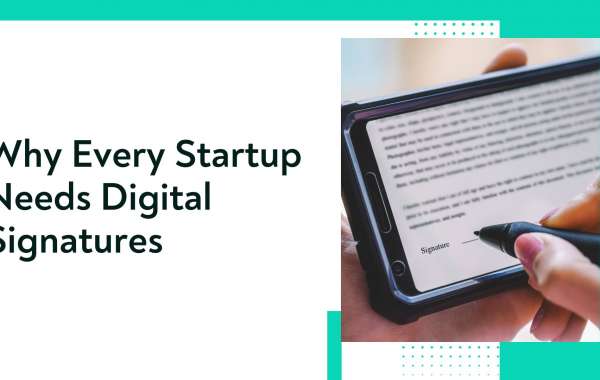A digital signature is a cryptographic technique that authenticates the identity of the signer and ensures the integrity of the signed document. Unlike traditional handwritten signatures, digital signatures are generated and verified through mathematical algorithms and encryption, making them tamper-proof and more secure. They are widely recognized by laws such as the Information Technology Act (India), eIDAS (EU), and ESIGN Act (US), ensuring their legal validity in numerous jurisdictions.
The Unique Challenges Faced by Startups
Startups often operate under unique constraints and opportunities that make digital signatures particularly valuable.
Limited Resources
Startups typically work with tight budgets and minimal staff. Implementing cost-effective and time-saving solutions, like digital signatures, allows them to allocate resources more effectively.
Remote and Distributed Teams
Many startups embrace remote work, requiring tools that support seamless and secure collaboration across geographies. Digital signatures enable instant signing and sharing of documents, irrespective of location.
Rapid Scaling
As startups grow, the volume of documentation increases exponentially—contracts, NDAs, invoices, and more. Managing these efficiently is critical, and digital signatures streamline the process.
Benefits of Digital Signatures for Startups
1. Cost Efficiency
For startups, every dollar saved can be reinvested into growth. Traditional paper-based processes incur costs for printing, courier services, and storage. Digital signatures eliminate these costs, offering a paperless, cost-effective alternative.
2. Time Savings
Time is a precious commodity for startups, and digital signatures dramatically reduce the turnaround time for document signing. Instead of waiting days for postal delivery or arranging in-person meetings, digital signatures facilitate instant document approval.
3. Enhanced Security
Startups deal with sensitive information such as intellectual property, financial data, and client details. Digital signatures provide robust security through encryption, ensuring documents are authentic and tamper-proof.
4. Legal Validity and Compliance
In the global marketplace, ensuring compliance with local and international regulations is essential. Digital signatures are legally recognized in most countries, making them ideal for cross-border transactions.
- Laws Supporting Digital Signatures:
- The ESIGN Act in the United States.
- The eIDAS Regulation in the European Union.
- India’s Information Technology Act.
5. Scalability
As startups grow, their operational needs become more complex. Digital signatures scale effortlessly with business requirements, from onboarding new employees to managing vendor contracts.
6. Eco-Friendly Operations
Modern consumers value sustainability, and startups often pride themselves on eco-conscious practices. By going paperless with digital signatures, startups can significantly reduce their environmental footprint.
Process to apply for Digital Signature
Step 1: Visit Our Website: Go to our website to start the process.
Step 2: Fill in Your Details
- User Type: Choose if you are an individual or an organization.
- Certificate Type: Pick if you need it just for signing documents or for both signing and encryption.
- Validity: Choose how long you want the certificate to last.
- Personal Info: Enter your name, phone number, email, and address.
- Agree to Terms: Check the box to agree to the terms.
- Submit: Click the submit button.
Step 3: Choose Token Option
- Already Have a Token?: If you have a USB token, choose "No." If you need a new one, choose "Yes."
Step 4: Make Payment
- Payment: Enter your payment details and choose how you want to pay (net banking, credit card, debit card, or UPI).
Step 5: Complete the Process
- Review: Make sure all your information is correct.
- Submit: Click submit and wait for a confirmation email.
Step 6: Get Your digital signature
You’ll receive your digital signature on a USB token drive after processing.
Real-World Applications for Startups
1. Human Resources
Streamlining HR operations with digital signatures enhances the onboarding experience for new hires. Employment contracts, confidentiality agreements, and tax forms can be signed digitally.
2. Customer Agreements
Startups in SaaS, e-commerce, and consulting often require customer agreements to be signed promptly. Digital signatures ensure a smooth, frictionless customer experience.
3. Vendor Management
Managing vendors involves signing agreements, purchase orders, and invoices. Digital signatures speed up these processes, ensuring uninterrupted supply chains.
4. Investor Relations
Securing funding is critical for startups. Digital signatures enable quick finalization of term sheets, shareholder agreements, and funding contracts, keeping investors engaged and transactions swift.
5. Legal Documentation
Startups often need to protect intellectual property (IP) through patents or trademarks. Digital signatures authenticate these filings, providing a secure and tamper-proof mechanism.
Read this blog:- Class 3 Digital Signature.
Conclusion
Digital signatures are no longer a luxury but a necessity for startups aiming to thrive in a competitive landscape. They offer unparalleled advantages in terms of cost savings, time efficiency, security, and scalability while aligning with modern demands for sustainability and compliance. By adopting digital signatures, startups can focus on what truly matters—innovating, scaling, and succeeding.




